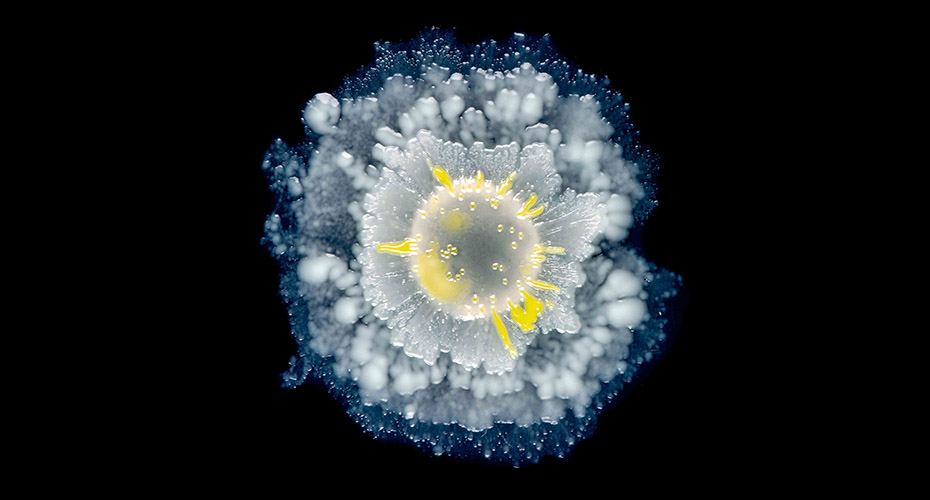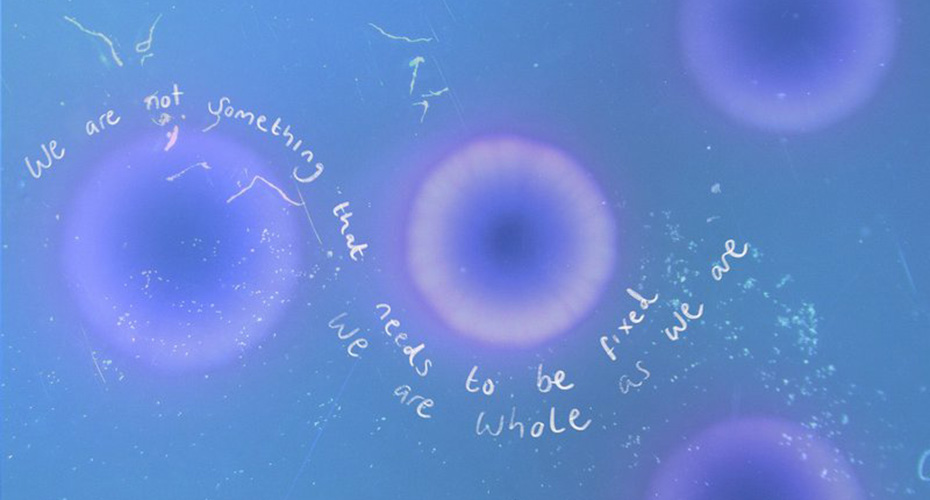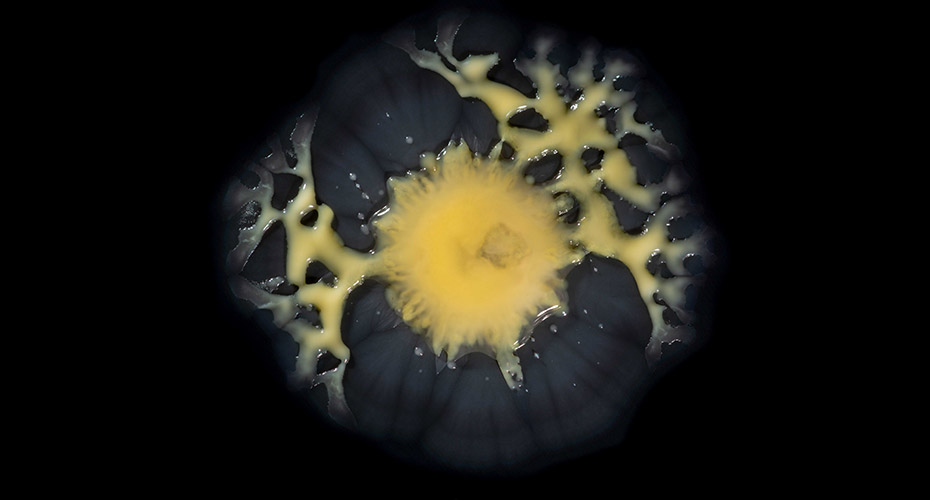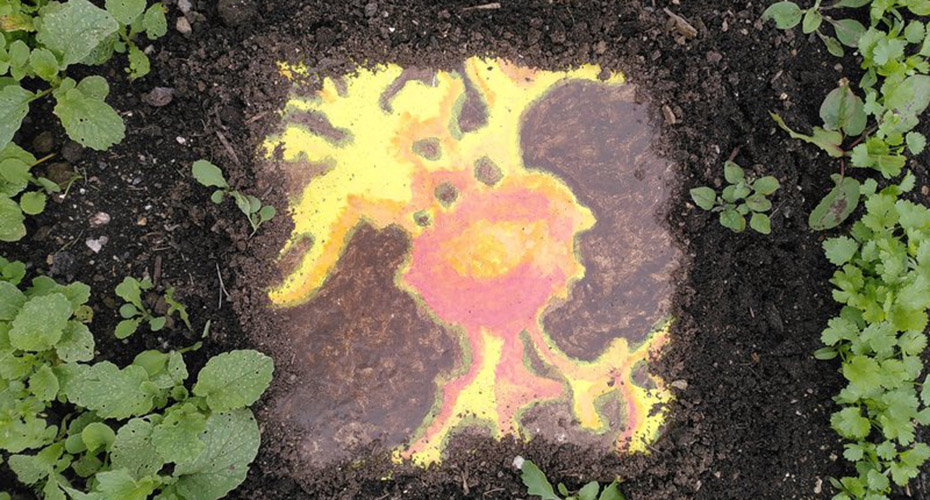The evolutionary ecology of interspecific microbial public-goods
Image credit: Dr Tim Cockerill
Research overview:
I am a passionate scientist, fascinated by the interplay of biotic interactions on ecology and evolution, having employed various model organisms (plants, bacteria and viruses) and techniques (field surveys, evolution experiments as well as statistical and genomic analyses). My current research aims at understanding when and why different bacterial species cooperate.
Bacteria often display behaviours that simultaneously benefit the community as well as themselves. Such behaviour is open to invasion by ‘cheats’ who contribute less than their fair share. This raises an important outstanding question – what are the key drivers maintaining community-wide cooperation? This is non-trivial as bacterial cooperation has important implications for ecosystem functioning and human health.
Mining generates enormous amounts of toxic waste.Bacteria have evolved various ways to remediate toxic metals, including increased siderophore production. Bacteria pump these small molecules into the environment, where they bind to metals and prevent them from being taken up and poisoning cells. Hence, siderophores not only benefit the producer but potentially also neighbouring community members.
Key objectives:
Using experimental evolution combined with genomics, I am currently investigating the ecological conditions under which community-wide siderophore production is maximised with the aim to answer the following overarching questions:
- How can we maximise microbial detoxification?
- How can we manipulate plant-microbe interactions to extract metals from soil?
Impact:
The production of toxic mine waste is a global problem. There is a clear need for sustainable remediation strategies that allow for rapid recovery of mining sites with minimal intervention. Unsurprisingly, researchers have started using microbes to clean up mine waste, mainly in the context of single species. But this is too simplistic: microbes work much better as a community in a ‘division of labour’. Mine wastes typically contain multiple toxic metals that pose serious threats to ecosystems and human health. When different species specialise to detoxify different metals, this is predicted to improve remediation. However, not all individuals might pay their fair share and cheat the system. This classic problem is well understood in evolutionary biology for single species, but not at the community level. My research is unique in that is aims to understand the conditions under which different species and individuals work together to detoxify metals with the aim to develop sustainable remediation strategies.
To help deliver my research into practice, I am collaborating with stakeholders from the mining industry (e.g. Wardell-Armstrong, North Coast Consulting, Environment Agency). I will communicate my findings to the wider public by collaborating with non-profit organisation – Then Try This – to organise outreach events and citizen science projects.
I am organising three “Social Microbes” residencies in collaboration with Then Try This. The project explores the social behaviours of microbes, and how these behaviours could be changed through various interventions, in order to bring benefits like helping us to clean up mine waste, or helping crops to take up less heavy metals from polluted soil.
- Hattie Porter at the Fish Factory: My life is worth living even if my tummy hurts sometimes
- Francesca Willow at Soul Farm: Open a window under my feet
- Tiff Leek at Wheal Martyn: coming soon, installation in Autumn/Winter 2023.
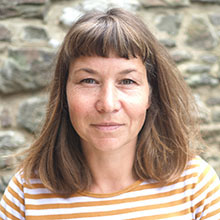
Understanding when and why different species cooperate allows us to predict how bacteria explore their environment and to harness these interactions to our own benefit.
Dr Elze Hesse
Hesse E, O’Brien S, Bayer F, Lujan AM, van Veen EM, Hodgson DJ, Buckling A (2021). Stress causes interspecific facilitation in a compost community. Ecology Letters 24: 2169-2177.
Hesse E, Padfield D, Bayer F, van Veen EM, Bryan C, Buckling A (2019). Anthropogenic remediation of heavy metals selects against natural microbial remediation. Proceedings of Royal Society B 286: 20190804.
O’Brien S*, Hesse E*, Luján AM, Hodgson DJ, Gardner A, Buckling A (2018). No effect of intraspecific relatedness on public goods cooperation in a complex community. Evolution 72: 1165-1173.
Hesse E*, O’Brien S*, Tromas N, Bayer F, Lujan AM, van Veen EM, Hodgson DJ, Buckling A (2018). Ecological selection of siderophore-producing microbial taxa in response to heavy metal contamination. Ecology Letters 21: 117-127.
Dr Elze Hesse was invited on BBC Radio 4 to talk about her work on microbial communities inhabiting mine-degraded soils as part of the programme 'Costing the Earth.'
Dr Elze Hesse (University of Exeter)
Luke Lear (University of Exeter)
Ruth Warfield (University of Exeter)
Communities in soil might help each other but can be disrupted by how soil is treated. To showcase this compelling, but little understood story, I have been involved in art-science collaborations as part of the University of Exeter’s Creative Exchange Programme. Along with Dr Tim Cockerill, I developed an online exhibition ‘Should I stay or should I go’ showcasing a series of large-scale macro photographic images to visualise how social cues affect how bacteria swarm collaboratively.

